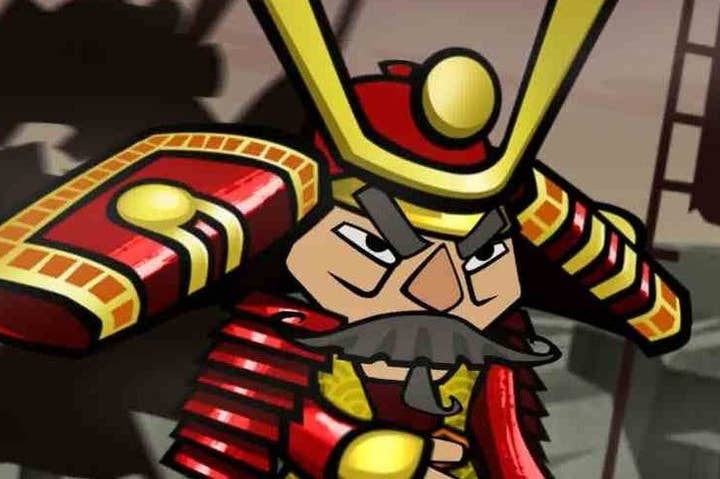A word on dealing with publishers: Don't
Skulls of the Shogun dev Borut Pfeifer cautions indies against signing deals for marketing help, says many exist to leech value
In yesterday's Game Developers Conference panel of AAA developers who made the jump to indie, Plush Apocalypse owner Borut Pfeifer had a word of advice for small developers on signing with publishers: Don't.
"It's not just the basic concern that they'll take a cut of your profits that hinders your ability to sustain your business," Pfeifer said. "It's also the fact that you think they'll bring their business and marketing skills to the table, but the reality is that you need to learn to do those things anyway. So you really have to look hard at what they're saying you and what they're bringing to the relationship."
"There are so many platforms, they're all overcrowded, the value of getting a feature on any of them has just gone down from day one on all of them pretty much."
Pfeifer broke down publishers into three categories: Platform owners, promotional-only publishers, and development-funding publishers. The third kind is rare enough that Pfeifer considered illustrating them with a slide of a unicorn, so he focused instead on the first two categories.
Pfeifer was a collaborator with 17-Bit studios on Skulls of the Shogun, which was published by Microsoft on Xbox 360 and Windows Phone, and later self-published by 17-Bit on other platforms. He said that dealing with a platform holder like Microsoft may sound great for the featured placement on their digital storefronts, but the exact value of that placement is debatable.
"There are so many platforms, they're all overcrowded, the value of getting a feature on any of them has just gone down from day one on all of them pretty much," Pfeifer said.
That's not to say there are no benefits to dealing with platform holders. For one, they might be interested in paying developers for timed exclusivity on their platforms, and depending on how long a window they want, that can make a lot of sense.
"There's a certain amount of time that it will take to port your game to the next platform," Pfeifer said, "and giving away exclusivity under that time is basically free to you, and they will give you money for that. Which is great."
Pfeifer had less positive things to say about promotional publishers. It's a logical enough idea to match a skilled developer with skilled marketers and promoters, but he said it's best to be extremely skeptical of their claims.
"In reality, 90 percent of them are just there to sort of leech value," Pfeifer said. "They're not really adding value right now in the industry."
"If they can't build a marketing budget and show it to you, then they probably don't know how to market your game."
Pfeifer took particular issue with contracts he's seen from promotional publishers that take a set percentage of royalties but don't guarantee a marketing budget in return.
"Well, how about we leave an unspecified amount of royalties in that contract," Pfeifer asked, adding, "You might think these things are sort of amorphous, but going to a show like PAX has specific travel costs. Buying online advertising has specific costs. If they can't build a marketing budget and show it to you, then they probably don't know how to market your game."
By basing their pay on royalties, promotional publishers can convince developers that they're invested in the game and will work their hardest to ensure its success. Again, it's a logical idea, but it's not necessarily how things work out.
"They're actually rewarded for signing like 10 indies," Pfeifer said. "They don't have to do much work, one of them hits, and then they make money from that."
The promotional publisher model is only going to get more popular, Pfeifer said, but it's also changing. The role they fill at the moment can in many ways be taken by YouTubers. They're effectively becoming publishers, Pfeifer said, taking royalties for unknown games they feature. It's actually a model Pfeifer was much more positive about, as it's easier to determine the value of the deal. Developers can easily see how many subscribers a YouTuber has and can agree on having a set number of videos made for a certain percentage of royalties, then figure out if the impressions that will generate is worth the cost.

